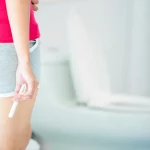What are hiccups?
Hiccups, also known as hiccoughs, are caused by a spasm of the diaphragm. The diaphragm is the thin muscle between the chest and abdomen. If it suddenly and involuntarily contracts or tightens, it causes a sharp intake of breath. When this happens, you quickly close your vocal cords, which produces the ‘hiccup’ sound.
Hiccups can be annoying but are not usually serious and typically go away after a while. If hiccups go on for longer than 2 days, they are considered ‘persistent’ or long-lasting, and can interfere with eating and sleeping.
See your doctor if your hiccups last for more than 2 days, if you have trouble breathing or swallowing, or if you have a severe pain in the abdomen (belly).
What causes hiccups?
Hiccups may start and stop without any obvious reason. However, some things increase your chances of having hiccups including:
- overeating, or eating too quickly
- spicy foods
- hot or fizzy drinks
- alcohol
- smoking
- stress, fear or excitement
- swallowing air
In rare cases, hiccups that last for days or weeks may be caused by an underlying condition, or by some medications.
Some of the underlying conditions are:
- gastro-oesophageal reflux (GORD) or heartburn
- pneumonia or asthma
- brain injury (such as from trauma, a stroke or a tumour)
- central nervous system disorders, such as multiple sclerosis and stroke
- metabolic disorders, such as diabetes
Medications that have been associated with hiccups include:
- anaesthetics (medications given before and during surgery that causes a loss of consciousness)
- corticosteroids (which may be used to reduce inflammation)
- chemotherapy (cancer treatment)
- some medicines for anxiety, pain, high blood pressure and seizures
Long-lasting hiccups can cause discomfort and pain, disrupt sleeping and eating, and may cause anxiety or depression.
Hiccups in babies
Babies often have hiccups. They can even have hiccups in the womb.
Hiccups do not normally bother babies. But if you want to stop your baby hiccupping, you can:
- take a break from feeding to burp them
- give them a dummy to suck
- rub their back
- sit them upright after their feed
If you are worried about your baby’s hiccups, speak to your doctor or child health nurse.
How to get rid of hiccups?
In most cases, an episode of hiccups will stop all on its own after a few minutes. You can try the following, although none of these have been proven to stop hiccups:
- holding your breath for a short period
- sipping cold water
- breathing into a paper bag
Other unproven remedies including biting on a lemon and getting a fright.
If your hiccups last longer than 2 days, see your doctor. If an underlying condition is causing your hiccups, treating that condition may help.
A number of medications, and also acupuncture treatments, have been used to treat long-lasting hiccups. However, it is not clear how well these treatments work.




